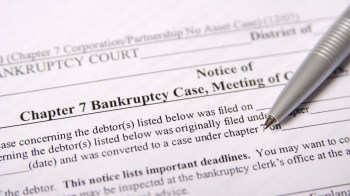How to haggle for the best medical cost
TEXT OF INTERVIEW
Bob Moon: A lot of the health-care debate moved behind closed doors on Capitol Hill this week. Public option in, public option out or, maybe, back in again. And will insurance companies lose the legal protections that currently allow them to get together to set prices? You may not know it, but there are things you the consumer can do in the meantime to set your own prices.
Mark Rukavina of the Access Project is here to tell us how that can work. Hi Mark.
Mark Rukavina: Hello Bob.
Moon: So I am used to haggling over a car or that old easy chair at the flea market, but you can really make your best offer to a doctor?
Rukavina: Many people are surprised to learn that medical bills are, in fact, negotiable. While all patients may be charged the same fee, not all are expected to pay the same fee.
Moon: What are some of the more common things that people might try to negotiate?
Rukavina: Hospitals; doctors; other providers, including ambulance companies; lab fees; for any bills that a patient has, they should approach the provider about charity care or a discount for those fees. Many providers offer what is called a “prompt pay” discount, which is payment at or near the time of service or once the bill is generated. And if people have the resources to take advantage of that, they should be encouraged to do so.
Moon: Now, how do you know what a fair price is for a particular procedure?
Rukavina: Well, what a fair price is is a very difficult question to answer. Good data on pricing and pricing and quality are difficult to find. However, as I said earlier, prices are negotiable. So people that need procedures and have bills that they’re struggling to pay, should ask for a discount for those procedures.
Moon: Let’s say you didn’t set a price upfront. Is it possible to talk down the bill once you get it?
Rukavina: Absolutely, absolutely. People should first look at their bills and make sure that they’re being billed for services that they did in fact receive. If they have questions about the bills they’ve received, they can ask for a detailed itemized bill from their providers. If there’s anything on there that seems suspicious, they should pursue that first with the provider, possibly with their private insurer or their public insurance program that they may be covered by.
Moon: Now is this kind of haggling something that mostly people who don’t have insurance do or do people who have insurance actually engage in this?
Rukavina: Well increasingly in this economy, people with insurance are engaging in these negotiations as well. Many insured people have a lot of upfront costs that they’re expected to pay, very large deductibles or very large co-payments. And again, in talking with providers, often times you can negotiate down those fees.
Moon: Now you help people negotiate medical bills all the time. Is this just about the price or is it about more than that?
Rukavina: Well, it’s primarily people are contacting us for help on the price, they have medical bills that they’re struggling to pay. Many of them have exhausted their savings and still come up short in terms of paying back those bills in full. But it is in fact about empowering consumers around the kind of care they’re receiving and the cost that they pay for that care.
Moon: Mark Rukavina is executive director of the Access Project, a non-profit that helps people negotiate their medical costs. Thanks very much for the valuable information.
Rukavina: Thanks.
There’s a lot happening in the world. Through it all, Marketplace is here for you.
You rely on Marketplace to break down the world’s events and tell you how it affects you in a fact-based, approachable way. We rely on your financial support to keep making that possible.
Your donation today powers the independent journalism that you rely on. For just $5/month, you can help sustain Marketplace so we can keep reporting on the things that matter to you.


















